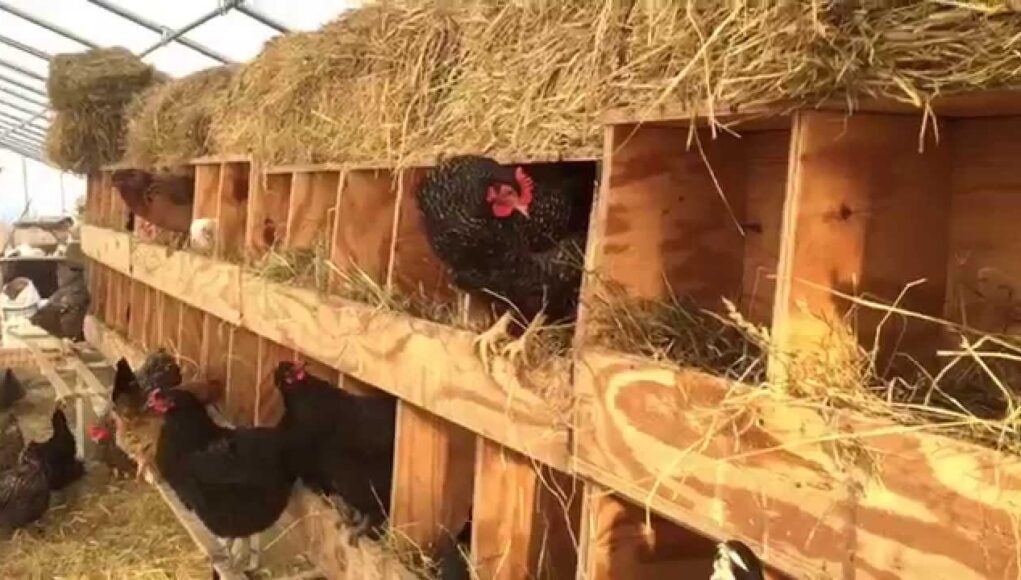Raising chickens has become a popular pastime for many, not only for the joy of caring for these fascinating creatures but also for the reward of freshly laid eggs. However, a common question arises among chicken keepers: How should one go about storing freshly laid eggs to maintain their quality and freshness? In this article, we’ll explore the best practices and valuable tips for ensuring your eggs stay fresh for longer periods.

Understanding Freshly Laid Eggs
Freshly laid eggs come with a natural protective coating called the bloom or cuticle. This coating acts as a barrier, preventing bacteria from entering the egg and keeping it fresh. Signs a Hen is About to Lay can help you anticipate when to collect eggs.
Why the Bloom is Important
The bloom is crucial for maintaining egg freshness. It seals the eggshell pores, preserving the egg’s internal environment. When Daily Egg Collection is practiced, the bloom remains intact, allowing for safer storage.
Best Practices for Collecting Eggs
Proper collection methods ensure that eggs remain clean and the bloom is preserved. Collect eggs frequently, ideally once or twice a day, to minimize the chance of contamination or damage. Avoiding Broken Eggs in nesting boxes can also be achieved through careful collection.
Handling Eggs Gently
When collecting eggs, handle them with care. Gently remove them from the nesting box to avoid cracking the shell or disturbing the bloom. Using Organic Bedding can help keep nesting areas clean and reduce egg breakage.
Storing Freshly Laid Eggs
Once collected, it’s essential to store eggs correctly. There are several methods, but the key is to keep them in a cool, stable environment. This can be achieved by storing them in a refrigerator or a cool pantry.
Refrigeration vs. Room Temperature
In regions with high ambient temperatures, refrigeration is recommended to prevent spoilage. However, in cooler climates, eggs can be stored at room temperature for a short period. The choice between refrigeration and room storage depends on personal preference and environmental conditions.
Egg Orientation
When storing eggs, consider their orientation. Place eggs with the pointed end down to help maintain freshness. This position keeps the yolk centered and reduces the chance of the air cell compromising the egg’s quality.
Washing Eggs: To Wash or Not to Wash?
Washing eggs removes the bloom, so it’s generally not recommended for eggs that will be stored for a longer period. If you must wash eggs, do so right before use to reduce the risk of contamination.
Signs of Spoiled Eggs
It’s essential to know the signs of spoiled eggs to ensure safety. A rotten egg often emits a strong, unpleasant odor. Other signs include discoloration and unusual texture.
The Float Test
The float test is a simple method to check egg freshness. Place an egg in a bowl of water; if it floats, it’s likely spoiled. Fresh eggs will sink due to their higher density.
Benefits of Freshly Laid Eggs
Freshly laid eggs are not only delicious but also packed with nutrients. They offer a richer flavor and better texture compared to store-bought eggs. Plus, knowing the source of your eggs provides peace of mind about their quality.

FAQs
How long can freshly laid eggs be stored?
Freshly laid eggs can typically be stored for 3 to 5 weeks if refrigerated and 1 to 2 weeks at room temperature, depending on conditions.
Is it necessary to refrigerate farm-fresh eggs?
Refrigeration is recommended in warmer climates to prevent spoilage. In cooler environments, room temperature storage is acceptable for a limited time.
How can I ensure eggs remain clean in the nesting box?
Maintaining clean nesting boxes with fresh bedding, like Community Nesting, helps keep eggs clean and minimizes the need for washing.
For more detailed information on chicken care and egg storage, visit DIY Nest Box Ideas for creative solutions.
This article contains affiliate links. We may earn a commission at no extra cost to you.











